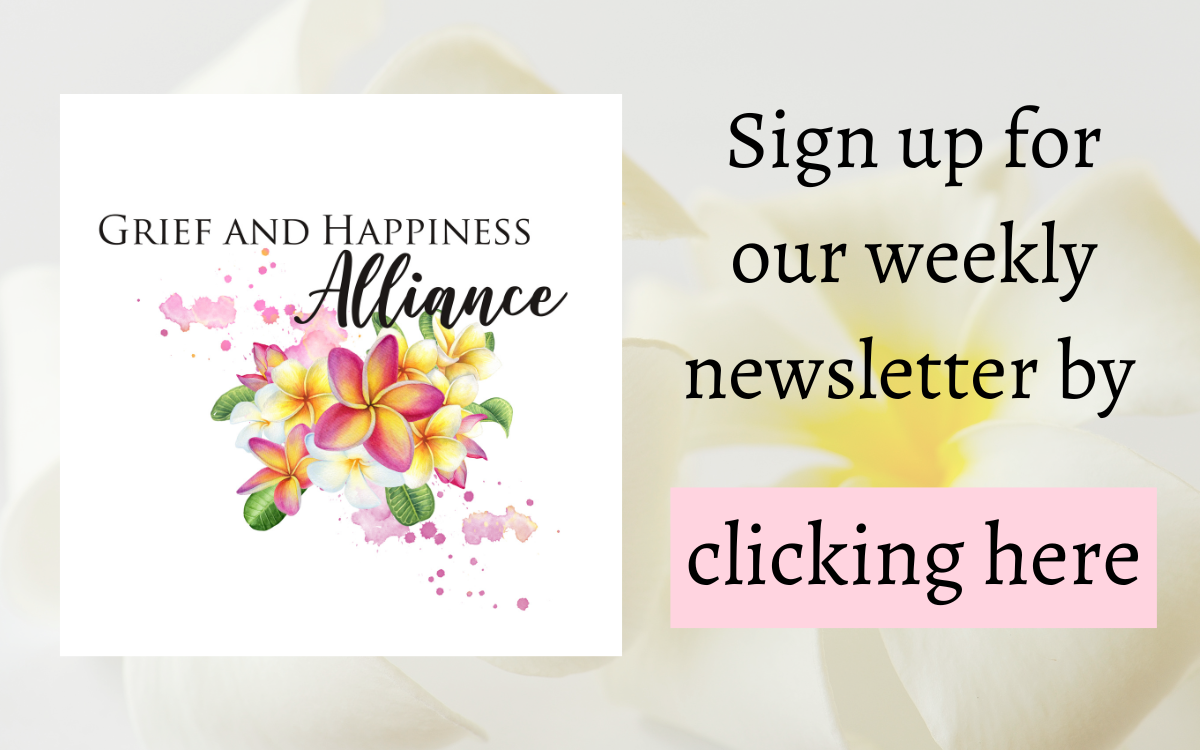
Do you feel guilty related to your grief? Don’t be surprised if you do. Just about everyone who grieves also feels guilt related to who died, what caused the death, or the grieving afterward. No emotion has caused me more pain, or amplified my loss more than guilt. Guilt is just part of what we do. If we don’t have something to feel guilty about, we are good at creating it. Check out this list and see if any of the examples are something you feel, and there is good news. You can do something about it!
- The last thing you thought about your loved one was negative and you didn’t get a chance to change your thinking.
- The last thing you said was hurtful or negative and you didn’t get a chance to apologize.
- You didn’t insist that your loved one got treatment some enough.
- You couldn’t seem to do anything about treatment you thought was wrong or harmful.
- You didn’t visit your loved one often enough or spend enough time.
- You didn’t do something you said you would.
- You weren’t there at the time of death.You didn’t come right away when you were called.
- You didn’t notice when there was something wrong you could have done something about.
- You survived your loved one’s death.
- You were happy or felt relieved about the death.
- You were angry at God.
This list is by no means comprehensive. We can experience or make up all kinds of things to feel guilty about. The thing to keep in mind here is that guilt implies an intent to harm. If any action you did or thought you had was not done with an intention of harming your loved one, you are not guilty. Guilt implies that you failed at something or did something wrong, and most of the items on the list above don’t fall into that category. So as you reflect on the guilt you feel, see if it is about something that isn’t bad or wrong at all.
Has someone told you not to feel guilty? That really doesn’t help. I know that when someone tell tells me how not to feel, I am most likely to feel whatever they say that much more! So when someone says that, just smile and say thank you, then ignore what they said. But sometimes you are guilty, and if that is the case, you do need to deal with that. If you really did make a mistake like giving someone the wrong medicine that lead to their death, or you were driving drunk and had an accident leaving someone you loved to die, those are legitimate reasons for feeling guilty. Getting help from a counselor, minister, or grief group is essential in cases like these.
Our brains like order. When things are out of order in our lives, we tend to try to create things to get back on track. Consider this when you are looking at things you feel guilty about. When you realize what it is that bring you guilt, examine that and see if realistically there actually was something you could have changed, something you could have done differently. In Will Smith’s movie Seven Pounds, he suffered tremendous guilt after using his cell phone while driving lead to the death of his wife. The movie is how he dealt with that guilt. What he chose was extreme making for an interesting movie, but you don’t have to be dramatic. You may discover a path to doing something wonderful to help you through your feelings and get things back into order. Candy Lightner’s daughter was killed by a drink driver, so Candy decided to create something that would prevent others from suffering the way she did. Candy is the founder of Mothers Against Drunk Drivers. What could you do or create that would give you something positive to focus on?
In your memory of the experience that led to your grief, is it true? This may seem like a strange question. You say, “Of course my experience was true!” But was it, all of it, really? For instance, when you tell a close friend of your experience, do you say the same thing that you would say to your employer, your mail delivery person, or your daughter? Sometimes we shift the focus of the story we tell and add or leave out details. So which story is the truth? In creating a variety of stories, you may start feeling quilt when you realize how different they end up being. The solution for this is to stay in truth and focus on the positive. Are there things you would have liked to have done before your loved one died? I would have loved to have spent more quality time with my mother before she died. We hadn’t spent a lot of time together throughout my whole life, and after she died, I realized how much I had missed. I knew more about my grandmother than my mom. If I had it to do over again, I would have gone way back in time and been a better daughter to her, but that couldn’t happen, and feeling guilty that I couldn’t change anything did not serve me. I had to accept the situation, integrate it into my life by being a better mother, friend, or sister now while a can, then move one with my life.
This leads to all those things that you could have, should have, would have done that didn’t happen. Maybe you could have had a standing date each week with your loved one to catch up. Maybe you could have insisted that your mother get her financial affairs in order. Maybe you would have been nicer to your friend had you known he was going to die suddenly. Maybe you would have been a better wife, brother, friend, employee, or whatever roles you played. Think of all you should have, could have, would have and realize that there is nothing you could do about any of those things now, so speeding time with them does not serve you. Do decide now what you can and will do, then do these things. That will help you release all those old, negative thoughts.
Perhaps your relationship with your loved one wasn’t always rosy and you fall into dwelling on the bad times. Guilt can run wild with telling you that you weren’t good enough, that you shouldn’t have raised your voice. I went through a period where I kept replaying things Ron said that I didn’t like. He would sometimes criticize me in front of others, and that drove me crazy. A friend pointed out an example of that to me, and I dwelled on it for a few days. Now this isn’t something that happened all the time and he was generally supportive of me, and I know he thought he was being supportive when he would say something like that. I dealt with it by focusing on all the good things in our relationship and realizing that no harm was intended. Then I had to let it go. Stewing about things past would never change anything or bring me joy, and realizing that allowed me to keep things in perspective and move on.
Consider these factors as you explore the guilt that you may feel:
- Guilt is normal. Don’t let others minimize it.
- You are not alone. Everybody feels guilt at some time.
- Is the guilt you are feeling the truth? If yes, admit it and deal with it. If not, let it go.
- Are you being rational? You can’t control someone else’s addiction or mental illness, Alzheimer’s, cancer, or anything else.
- Think about who you can talk to about your guilt, then talk to whoever it is. A friend, counselor, group, minister?
- Forgive yourself.
- Do something positive to assuage your guilt.
- Think about what your loved one would say about your guilt.
- Find something good to dwell on
- What has your guilt taught you?
- Make restitution if there is a way to.
- Know that you can feel good and bad or happy and sad at the same time.
When Ron came home from the hospital the last time, we had arranged for a hospital bed in a spare room that had a bathroom where it would be easiest for the caregivers to take care of him. I am sure he would have preferred to come home to our bed, but there just wasn’t room for all he required and for the care givers to move around him. I was exhausted having stayed up with him, helping with his care around the clock for the last week. After we got him settled, I went into our bedroom and just crashed. I could not stay awake. That night I had a dream that he came into the bedroom to wake me up so we could talk. In the dream, his care giver was standing in the doorway. The next day, I told him about the dream, and he told me that it wasn’t a dream. He just wanted to snuggle with me in our bed one last time. I was devastated. He was never able to return to our room, and I felt guilty about that for a long time. Rationally I know that I wasn’t physically able to change that moment. I stayed by his side for the rest of the week, sleeping on the floor, until he died. I think I will always have tears with this memory.
I’ll bet you feel guilty about something. Something you said or didn’t say. Something you did or didn’t do. Guilt can be a nasty enemy. You don’t need that enemy clinging on to you. Shake it off. Let it go. Do this by forgiving yourself. Say out loud or write it down: “I forgive me. I forgive me. I forgive you. I forgive us.” Say or write it as many times as you need to. Know in your heart that your forgiveness is done. It is accepted. It is real. And it feels so much better for that nasty creature to be booted out of your life! Kick it out now!
